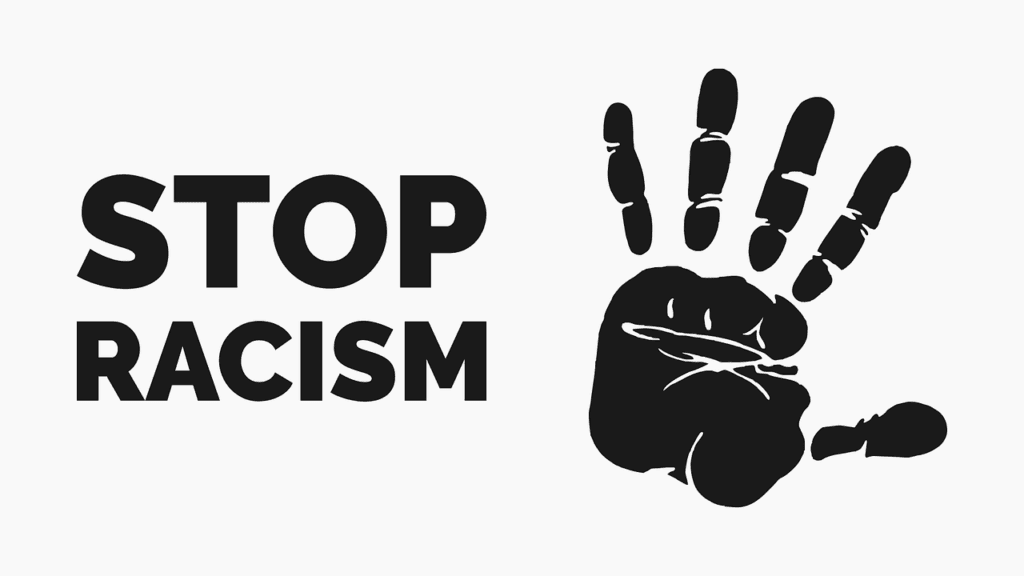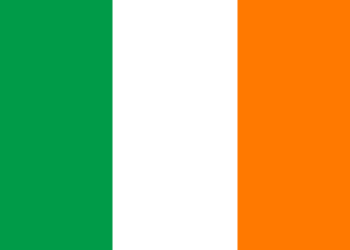Racism and Discrimination Against Travellers in Ireland – History, Progress, and Challenges
- 2 December 2024
- Posted by: OAH
- Category: History

Racism and discrimination against the Traveller community in Ireland have deep historical roots, dating back centuries. Despite recent legal and social progress, the Traveller community continues to face significant challenges in areas such as housing, employment, and healthcare. This post delves into the history of discrimination, the progress made through legal reforms, and the ongoing challenges that Travellers face in Ireland today, offering critical insights into the intersection of race, law, and social justice.
If you’re looking for the best Assignment Help Services, contact us!
Race, Racism, and Law: Understanding Discrimination Against Travellers in Ireland
Introduction
Racism in Ireland is an issue that has been documented since the early 19th century, with the Traveller/Mincéirí community being the main target of such discrimination. In recent years, the Irish government has taken steps to provide the Traveller/Mincéirí community with legal protection and recognition, but these efforts have yet to bear fruit. The Travellers/Mincéirí are a distinct ethnic minority in Ireland, originating from a nomadic way of life. They are made up of members of both the Roma and Irish Traveller communities and are recognised as a minority ethnic group by the Irish government.
Race is a concept used to categorise people based on physical characteristics, while racism is the belief that one race is superior to another and that members of one race are inherently superior or inferior to members of another race. This paper will discuss the issues of race and racism that arise in the context of Traveller/Mincéirí rights in Ireland. It will explore the history of discrimination against the Traveller/Mincéirí community, analyze the current legal and social framework, and consider the implications of these issues for the Traveller/Mincéirí community.
History of Discrimination against Travellers/Mincéirí in Ireland
Discrimination against the Traveller/Mincéirí community in Ireland has a long and well-documented history. In the 19th century, Travellers/Mincéirí were seen as “undesirables” and were subjected to physical and verbal abuse, as well as being excluded from public spaces and services (Joyce, 2018). This discrimination was exacerbated by the fact that Travellers/Mincéirí were not recognized as an ethnic minority group and were thus not eligible for the same legal protection as other minority groups.
The discrimination against Travellers/Mincéirí in Ireland has a long and complex history. The earliest recorded references to Travellers/Mincéirí in Ireland date back to the 12th century when they were referred to as ‘fahy’. They were subject to a variety of discriminatory laws and regulations, such as being denied the right to own property or receive an education, and were often subject to harassment and violence. This discrimination intensified in the 19th century, with the introduction of the Vagrancy Act of 1847, which criminalised the nomadic lifestyle of Travellers/Mincéirí.
This discrimination has continued into the present day, with Travellers/Mincéirí facing widespread prejudice and discrimination in areas such as employment, housing, and access to education and healthcare.
The discrimination against Travellers/Mincéirí has also been perpetuated by the Irish government, which has a long history of failing to address the issues faced by the Traveller/Mincéirí community. This includes failing to provide adequate housing, employment, and educational opportunities for Travellers/Mincéirí (McVeigh, 2008). This failure has been further compounded by the Irish government’s refusal to recognize Travellers/Mincéirí as an ethnic minority group.
There are many terms in which the Irish Travellers or Mincéirí have been discriminated against. The indigenous ethnic group has been found to speak their own language with distinctive culture and customs. Due to their nomadic way of life, they have been viewed to be not normal as per the stereotypical idea of society. In 1963, local authorities were reported to have attempted to force this ethnic group into settlement and the larger mass was also seen to turn against this specific ethnic group.
During the late 60s and 70s, many acts and regulations were created for assisting the aim of the commission to settle, assimilate, and eventually absorb. The caravan site operation was introduced in 1968 and involved the creation of Halting sites meant to act as a short-term measure to ease the settlement of the community.
According to Joyce (2018), the core problem behind anti-Traveller racism is the idea or assumption that the lifestyle of nomadism is an invalid way of life. The State has responded to outlaw it and the majority population has continued to view this ethnic group as inferior. According to widely conducted research by social experts, the group of Travellers or Mincéirí have been found to be the most marginalised and discriminated individuals in Ireland.
According to the study conducted by Millward Brown in 2004, the majority of the population was found to have a negative attitude toward Travellers. Almost 72 per cent confirmed that they were not willing to accept the Mincéirí among them while 23 per cent of the population feared for their own culture to be abolished. Travellers or the Mincéirí group have been found to be ten times more likely to experience discrimination compared to White Irish people in terms of seeking work. Furthermore, discrimination experienced by Travellers is 22 times higher in pubs, restaurants, and shops in comparison to the White Irish group. In relation to healthcare access, 40 per cent of Travellers have been found to be discriminated against ( (Pavee, 2019).
Anti-Travellerism has been postulated to be connected to the idea of Travellers as a subject. There is a lack of clarity in the Irish Legislation failing to define Travellers (McVeigh, 2008). For instance, the Republic of Ireland 1988 Housing Act has regarded Travellers as nomadic individuals irrespective of their ethnicity while the Norther Ireland 1997 Race Relations Order has defined Travellers as a racial group irrespective of nomadism. It has been postulated as racist anti-nomadism and sedentarism perpetrated at the specific ethnic group.
A newspaper article published by Mary Ellen Synon headlined “Time to get tough on tinker terror culture” was a modern example of anti-travllerism. In the post-colonial stage, Ireland witnessed the project of Travellers’ assimilation.

Current Legal and Social Framework in Ireland
Despite the long history of discrimination against the Traveller/Mincéirí community in Ireland, the legal and social framework surrounding Traveller/Mincéirí rights has improved in recent years. In 2017, the Irish government finally recognized Travellers/Mincéirí as an ethnic minority group, granting them legal protection under the Irish Constitution (Joyce et al., 2021).
This was followed by the passage of the Traveller/Mincéirí Ethnicity Bill in 2019, which provided further legal protections for Travellers/Mincéirí and recognized them as a distinct ethnic group (Pavee Point, 2019).
Despite these legislative victories, the Traveller/Mincéirí community still faces significant challenges in terms of discrimination and racism. For example, Travellers/Mincéirí are still subject to hate crimes and other forms of discrimination, such as being denied access to public services and housing (Joyce, Kennedy & Haynes, 2017). This discrimination is further exacerbated by the fact that Travellers/Mincéirí are often portrayed in a negative light in the media, which contributes to the perpetuation of negative stereotypes about the Traveller/Mincéirí community.
In spite of the recommendations proposed by the monitoring bodies of international human rights, there had been no renewal of the National Action Plan against Racism (2005-2008). After the National Consultative Committee on Racism and Interculturalism was abolished in 2008, the accountabilities for initiatives towards anti-racism were transferred to the Office for the Promotion of Migrant Integration (OPMI). In 2019, the OPMI closed due to the restructuring of the Justice and Equality Department.
The Migrant Integration Strategy of the State announced the potential establishment of a new anti-racism committee in 2019 to strengthen the approach to combat racism. The group of Irish Travellers were still excluded from the scope of the Migrant Integration Strategy suggesting this indigenous minority ethnic group is supposed to be not included in the works of the anti-racism committee (Pavee, 2019).
The NSWG 2017-2020 has been reported to contain actions pertaining to women from the Travellers group for the first time. However, these actions rely completely on the employment of gendered actions in the National Traveller Roma Inclusion Strategy or NTRIS which still lacks a clear plan for implementation as well as there is a lack of progress in NSWG’s action plans for Traveller women.
The National Traveller Health Action Plan was developed in 1994 to make significant impacts on the health of Travellers in Ireland. Recommendations 73 of Ireland’s National Traveller and Roma Inclusion Strategy 2017-2021 committed to developing a plan. Ireland currently has a National Traveller Mental Health Service governed by the Exchange House that provides Suicide Prevention & Mental Health Promotion along with Direct Mental Health Support.
The Suicide Prevention & Mental Health Promotion area of the service collaborates with Traveller groups to promote and develop initiatives such as reducing mental health-related stigma, promoting the prevention of suicide, and Travellers’ inclusion in service designing. On the other hand, the Direct Mental Health Support group facilitates recovery plans for Travellers undergoing mental health issues. The services provided by this department are psychotherapy, mentorship & peer support, cognitive behavioural therapy, along with assessment and management of suicidal feelings and thoughts.
Challenging racism against Travellers/Mincéirí in Ireland is a complex task. The Irish government has taken some steps to address the discrimination experienced by Travellers/Mincéirí, such as introducing the National Traveller and Roma Inclusion Strategy in 2018.
However, there is still a need for greater public awareness of the discrimination faced by Travellers/Mincéirí, and for effective policies to be put in place to tackle it. There is also a need for a better understanding of the issues faced by Travellers/Mincéirí in all sections of society, and for increased dialogue between Travellers/Mincéirí and other communities to promote acceptance and understanding.
In order to evaluate the legal positions of Travellers at the current time in Ireland, it must be acknowledged that while Travellers received recognition as an ethnic group in 2017, they were protected by the legislation recognising the different community experiences from the angles of discrimination and incitement to hatred by the end of the twentieth century.
However, because of no formal recognition of this specific ethnic group, the protections through the legislation remained a government gift that was unable to be withdrawn. The tension of the State related to Travellers increased due to the influence of the global human rights approaches to minority groups and persistent dejection from the official acknowledgement of Irish Travellers’ status as a minority. The National Council published the Charter of Rights of Travelling People in 1984 on Travelling People asserting the right to Travellers’ cultural identity recognition. The Prohibition of Incitement to Hatred Act 1989 is considered to be the first in a series of crucial pieces of legislation protecting the foundation of ethnicity in Ireland (Haynes et al., 2021).
The act under its section 2(1) categorised the use of words, publishing, distributing materials, behaviour, or broadcasting visuals or sounds abusing, insulting, threatening, or likely to invoke hatred against a group of individuals in the state or anywhere on the basis of their race, nationality, ethnic or national origins, colour, religion, Travelling community membership, or any sexual orientation. This Act was enforced for facilitating the ratification of the International Covenant on Civil and Political Rights reflecting the requisite categories for protection. In 1989, the final Act was shaped by parliamentary debates with a major focus on the extending protection of Irish Travellers based on their status as an ethnic group as per the Equality Authority 2006.
Consequently, the Employment Equality Act 1998-2015 along with the Equal Status Act 2000-2015 considered national or ethnic origins, nationality, race, or colour as the basis of discrimination. These Acts also recognised Traveller Community membership as a further basis of discrimination (Haynes et al., 2021). The Equality Status Acts defined the Traveller Community as the people’s community identified as shared traditions, history, and culture including a historical nomadic lifestyle.
In Spite of these wide-ranging legislative protections, the Travellers group reports higher rates of biases and discrimination while they seek work than the majority. In private services, discrimination has been reported to be even higher.
According to the reports of the Irish Human Rights and Equality Commission, a significant difference has been observed in the domain of ‘other public services’ between other Irish people and Travellers including social welfare and services provided by local councils. In the other public services, Irish Travellers have been analysed to experience discrimination four times higher compared to other groups. Even after the steps taken towards legal recognition of Irish Travellers’ experiences, the state has persistently refused to acknowledge the ethnicity of Travellers.
In 2006, Travellers were recognised as an ethnic minority by Ireland’s Independent statutory Equality Authority recommending the government of Ireland do the same. After the legal recognition in 2017, Travellers have been included in Criminal Justice Act 2017 (Haynes et al., 2021). However, the legislation has not mentioned ethnicity anywhere in the document. On the other hand, the Data Protection Act 2018 added the data subjects’ ethnic or racial origin that was previously excluded. Furthermore, the community of Travellers were particularly mentioned by the Education Act 2018.
Implications for the Traveller/Mincéirí Community
The issues of race and racism that arise in the context of Traveller/Mincéirí rights in Ireland have significant implications for the Traveller/Mincéirí community. The discrimination and racism faced by Travellers/Mincéirí can have a profound impact on their lives, from limiting their access to basic services and housing to causing psychological distress and even physical harm.
The discrimination against Travellers/Mincéirí in Ireland continues to have a significant impact on their lives. They are more likely to live in poverty, face homelessness and poor housing conditions, and experience higher levels of unemployment and underemployment. Studies have also shown that Travellers/Mincéirí experience higher levels of discrimination in areas such as education and healthcare, and are more likely to be victims of hate crimes. This discrimination has a significant impact on the mental and physical health of Travellers/Mincéirí, and can lead to feelings of exclusion and marginalisation.
In addition, the lack of recognition of the Traveller/Mincéirí community as an ethnic minority group can lead to a sense of marginalization, with Travellers/Mincéirí feeling excluded and isolated from mainstream society. This exclusion can further compound the discrimination and racism experienced by the Traveller/Mincéirí community, making it difficult for them to access the same opportunities and resources available to other minority groups.
Conclusion
Racism and discrimination against the Traveller/Mincéirí community in Ireland have a long and well-documented history. Discrimination against Travellers/Mincéirí has a long history in Ireland and continues to have a significant impact on their lives.
Despite recent legal and legislative victories, the Traveller/Mincéirí community still faces significant challenges in terms of discrimination and racism. This discrimination can have a profound effect on the lives of the Traveller/Mincéirí community, from limiting their access to basic services to causing psychological distress and even physical harm. It is therefore essential that the Irish government takes further steps to ensure that the Traveller/Mincéirí community is given the legal protections and recognition that they deserve.
There is a need for greater public awareness of the discrimination faced by Travellers/Mincéirí, as well as effective policies to tackle it. Additionally, there is a need for increased dialogue between Travellers/Mincéirí and other communities to promote acceptance and understanding. By tackling these issues, we can create a fairer and more just society for all.
References
Haynes, A., Joyce, S., & Schweppe, J. (2021). The Significance of the Declaration of Ethnic Minority Status for Irish Travellers. Nationalities Papers, 49(2), 270-288. https://www.cambridge.org/core/journals/nationalities-papers/article/significance-of-the-declaration-of-ethnic-minority-status-for-irish-travellers/43818064987B6E49B2604DB511FCBE97
Joyce, O. (2018). A Brief History of the Institutionalisation of Discrimination against Irish Travellers. Irish Council for Civil Liberties. https://www.iccl.ie/wp-content/uploads/2018/08/A-Brief-History-of-the-Insitutionalisation-of-Discrimination-Against-Irish-Travellers—Irish-Council-for-Civil-Liberties-1673897913515.pdf
Joyce, O., et al. (2021). The Significance of the Declaration of Ethnic Minority Status for Irish Travellers. Irish Council for Civil Liberties. https://www.iccl.ie/wp-content/uploads/2021/03/The-Significance-of-the-Declaration-of-Ethnic-Minority-Status-for-Irish-Travellers-1673897914256.pdf
Joyce, O., Kennedy, G., & Haynes, A. (2017). Travellers and Roma in Ireland: Understanding Hate Crime Data through the Lens of Structural Inequality. Irish Council for Civil Liberties. https://www.iccl.ie/wp-content/uploads/2017/06/Travellers-and-Roma-in-Ireland–Understanding-Hate-Crime-Data-through-the-Lens-of-Structural-Inequality-1673897914365.pdf
McVeigh, R. (2008). The ‘Final Solution’: Reformism, Ethnicity Denial and the Politics of Anti-Travellerism in Ireland. Irish Council for Civil Liberties. https://www.iccl.ie/wp-content/uploads/2008/10/The-Final-Solution–Reformism%2C-Ethnicity-Denial-and-the-Politics-of-Anti-Travellerism-in-Ireland-1673897914462.pdf
Pavee Point. (2019). Alternative Report to CERD Committee. Pavee Point. https://paveepoint.ie/files/Alternative_Report_to_CERD_Committee_01112019_1673897914516.pdf
Other Sample Work:










